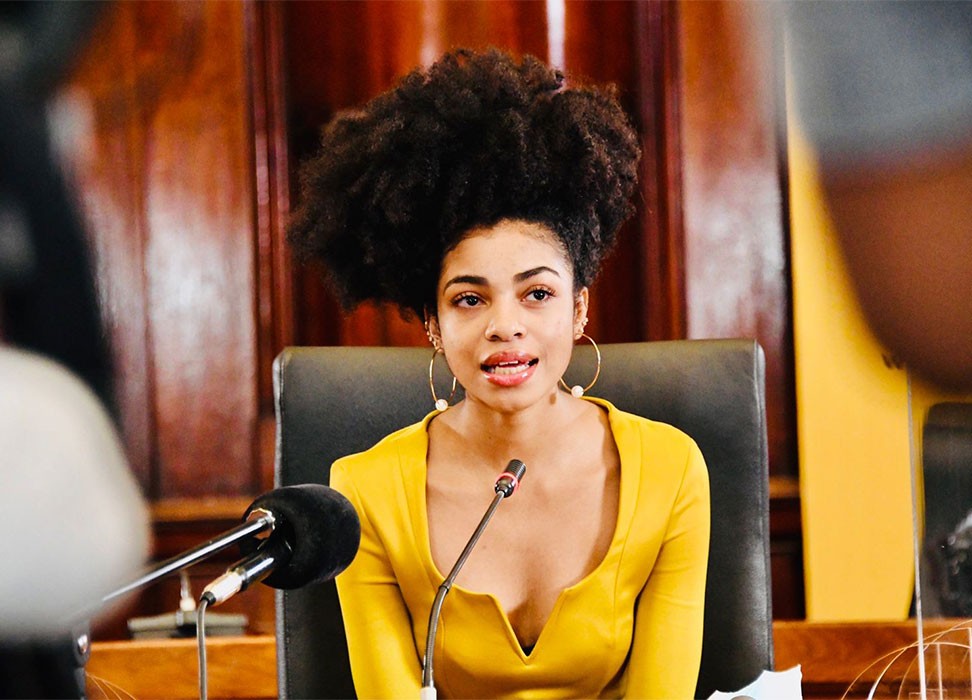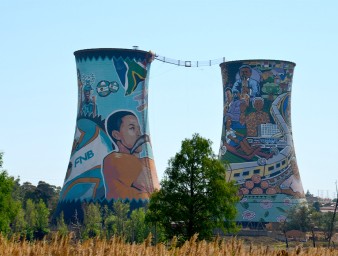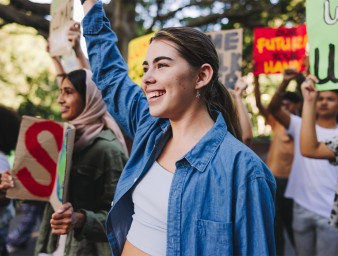It’s not just hair, it’s a statement of identity

Hair might be something inconsequential to many people, even something vain; however, as Zulaikha Patel explained, for Africans and people of African descent, hair is not just hair. It is culture. It is identity. And in the case of some South African Schools, it was a way to enforce discrimination and maintain apartheid.
“There was a pencil test [during the apartheid in South Africa],” she said. “If a pencil was put into your hair and when you shook your head, it did not slide out, you would pass for coloured, if it stayed inside you would be considered Black. That meant it wasn’t just hair anymore. It was now a tool that would determine your standard of living and the quality of life you’d have in South Africa at the time.”
At 13, Patel founded a movement called "Stop Racism at Pretoria High School for Girls" to fight institutional racism at her high school, whose rules included that Black girls had to straighten their natural Afro hair. Patel’s anti-racist movement sparked a countrywide movement in public schools.
“I led a protest where I was threatened with arrest, and at the time decided to take a stand [because] I was being forced to assimilate to whiteness and being forced to assimilate to an image that I did not fit into. It [hair] was a tool being used to enforce oppression on me,” recalls Patel.
According to the United Nations, institutional racism can be defined as the racial attitudes found in an ethnic group’s traditions, beliefs, opinions, and myths that are firmly ingrained in the very fibre of the ethnic group’s cultural paradigm. These beliefs are accepted as facts and understood to be normal behavioural practices whereas in effect marginalize and demonize the human worth of another ethnic group. This kind of belief has led to the idea that straight hair is cleaner and better than curly or coily hair.
The “Learn, Speak Up, Act!” Campaign launched on July 2022 by UN Human Rights aims at fostering concrete action to fight racism and other related types of discrimination. Challenging stereotypes and taking concrete action against biases that encourage institutional racism and discrimination based on things like natural Afro hair is key to the full realisation of human rights.
Patel was one of the laureates of the 2022 Young Activists Summit in Geneva Switzerland, which showcases young individuals who work for an inclusive and equal world. Patel’s inspiring journey fighting racism shows how taking a stand and carrying out key concrete actions can actually make a difference and positively transform the world.
Changing the narrative
In 2019, Patel, now 20, wrote and published a book called My Coily Crowny Hair to help transform the negative narrative associated with natural Afro hair. The book tells the story of a seven-year-old girl called Lisakhanya, whose name means “it still shines” in Zulu. Lisakhanya goes on a journey hand in hand with her mother and her grandmother to learn more about her Afro hair and the heritage attached to it. Lisa realises that Afro hair is not just hair and learns to fall in love with it and, ultimately, herself.
The book has become a best-seller and is helping empower girls to learn to love their natural hair and themselves.
“You can't separate any expression of Black hair from Black identity, especially because for Black people it's more than just hair. My hair, to me, wearing my hair out like this makes me feel powerful. It makes me feel free. It's a symbol of freedom for me, and it's a symbol of my resistance as well.”
Patel is now a law student and works with policymakers and decision-makers on the draft of inclusive anti-racist policies focusing on making sure that policies “are inclusive to Black people, inclusive to Africans as well.”
Besides studying and promoting her book, Patel has also founded a non-profit organization (NPO) called “Dare to change”, which focuses on “inspiring the youth to dare to change the world around them, which is focused on three pillars: education, activism, and literacy.”
“I began the NPO with the hope and aspiration to provide library corners to schools that schools that are heavily under-resourced and underdeveloped in rural and township communities in South Africa to meet the children's reading and literacy needs,” she said.



